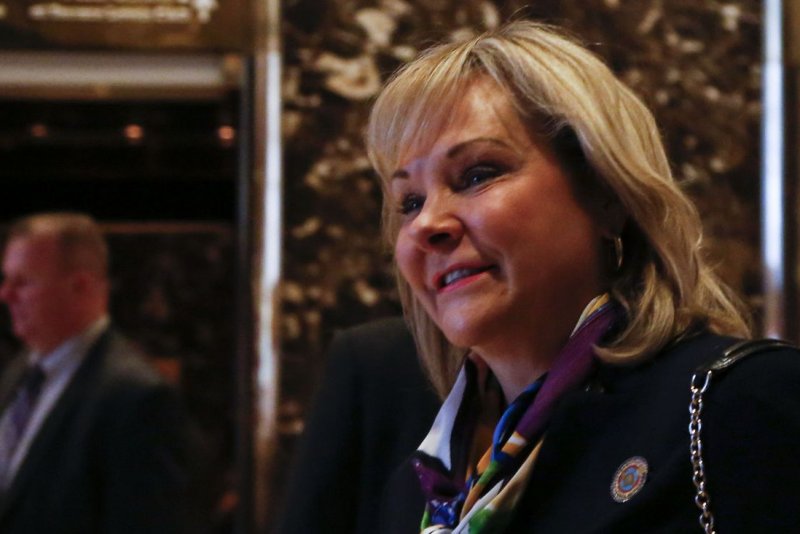Oklahoma Governor Mary Fallin vetoes most of a Plan-B budget measure because it relied too much on one-time funds. Pool Photo by Aude Guerrucci /UPI |
License Photo
Nov. 20 (UPI) -- With an election year ahead, the governor of the shale-rich state of Oklahoma said it's unlikely lawmakers will have enough focus to fix the budget.
Gov. Mary Fallin vetoed all-but five of the 170 sections of House Bill 1019X, legislation aimed at fixing the state budget, because it came "perilously close" to wiping out the state's available one-time funds and savings. Emergency appropriation keeps most state agencies running.
"Some legislative leaders have stated that revenue measures will be taken up in February when lawmakers return in regular session," the governor said. "But I am very skeptical because next year is an election year and the pressure not to do anything will be greater."
The state budget office in October said the general revenue fund, the main operating fund, was 12.4 percent below the September estimate. For the first three months of the fiscal year, the fund was 9.5 percent below collections from the previous year.
HB 1019X, the so-called Plan B budget measure, passed out of the House last week in a 56-38 vote. The plan called for tens of millions of dollars in cuts to state agencies, but leaned in part on an increase in the gross production tax on legacy oil and gas wells from 4 to 7 percent. The oil and gas tax measure was met with criticism by those working and supporting the energy sector in the state.
Oklahoma is home to about 4 percent of the total petroleum reserves in the country and accounts for as much as 5 percent of the total crude oil production. Taxes on oil and gas production generated $52 million in October, a 3.7 percent increase from the previous month.
Last week, the Oklahoma Independent Petroleum Association said there may be a bearish outlook ahead for the state energy sector. According to Russell Evans, policy director, his range for U.S. crude oil prices next year tops out at $54 on average, about $2 per barrel less than pre-market levels for Monday.
"These prices are sufficient -- if just barely -- to maintain a baseline of activity in Oklahoma's oil fields," he said in a statement.
Fallin's veto was issued late Friday.















